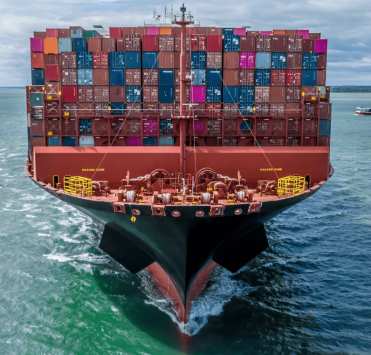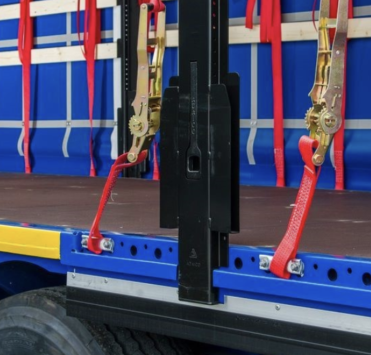Polyols: International Chemical Logistics

Transportation chemical cargo such as polyols requires a high level of professionalism, strict adherence to international standards, and specific transport conditions. Polyols play an important role in the chemical and industrial sectors, making their transportation a complex and responsible process. Here, we will discuss what polyols are, their key characteristics, transportation features in tank trucks and barrels, and important logistics and safety aspects for transporting chemical goods.
What is Polyol?
Polyol is a polyatomic alcohol containing multiple hydroxyl groups. This product is actively used in the production of polyurethanes, elastomers, adhesive compositions, and various other chemicals. Polyols are commonly applied in two main areas:
- Production of durable polyurethanes: These materials are resistant to external influences.
- Manufacturing softer materials: Such as fillers for furniture, flexible insulation, foam, and more.
Due to their unique properties, polyols are essential in the chemical industry and are key components in numerous finished products, making international transportation of polyols a crucial part of global chemical logistics.
Applications of Polyols in Various Industries
Polyols are widely used across various sectors, including:
- Polyurethane Foam Production
- Construction and insulation: Polyols create polyurethane foams for thermal and sound insulation in building projects. Rigid polyurethane foams with polyols are ideal for insulating walls, roofs, and floors due to their low thermal conductivity.
- Refrigeration equipment: Polyurethane foams with polyols are used as insulation layers in refrigerators and freezers, enhancing energy efficiency.
- Furniture Industry
- Soft furniture: Flexible polyurethane foams from polyols are used as furniture fillers (mattresses, sofas, chairs) for comfort and durability.
- Carpets and flooring: Polyols produce resilient coverings that are durable and resistant to deformation.
- Automotive Industry
- Seats and upholstery: Flexible polyurethane foams from polyols provide comfort and safety for seats, headrests, and other soft interior elements.
- Soundproofing: Polyols help produce sound-absorbing materials, reducing noise within the vehicle.
- Body and coating elements: Polyurethane coatings protect car bodies from corrosion and wear.
- Footwear Industry
- Soles and insoles: Polyols make lightweight, flexible, and durable shoe parts, with polyurethane soles providing shock absorption for comfort while walking or running.
- Electronics
- Encapsulation and insulation: Polyurethane compounds made with polyols protect electronic components from moisture, dust, and physical impact.
- Paint and Coatings Industry
- Polyurethane coatings from polyols offer abrasion resistance, chemical durability, and mechanical resilience. These are widely used in automotive, furniture, and construction sectors.
- Medical Industry
- Orthopedic products: Flexible foams from polyols are used to create orthopedic pillows, mattresses, and prosthetics, offering comfort and support.
- Medical equipment coatings: Polyols provide durable and disinfectant-resistant coatings for medical devices.
- Adhesive and Sealant Production
- Polyurethane adhesives and sealants made with polyols offer strong bonding and sealing properties for construction, machinery, and furniture manufacturing.
- Energy Sector
- Protective coatings for equipment in the oil, gas, and energy industries safeguard against corrosion and chemical exposure, extending equipment longevity.
Features of Bulk Polyol Transport in Tank Trucks
Transporting polyols in bulk tank trucks is one of the most effective methods for long-distance transportation of large volumes. This type of transport requires:
- Specialized tank trucks: Equipped for chemical transportation and meeting international standards.
- Temperature control: Polyols require strict temperature regulation, and tank trucks are usually insulated to protect the cargo from temperature fluctuations. In some cases, heating before unloading is necessary to maintain polyol properties.
- Hermetic sealing and moisture protection: Since polyols are hygroscopic, tanks must be airtight to prevent moisture, which could compromise quality.
- Proper tank preparation: Tanks must be thoroughly cleaned and washed to avoid cross-contamination with previous cargo, using specific solutions that remove chemical residues.
- Adherence to international standards and safety regulations: Polyol transport, like any chemical cargo transport, demands strict compliance with safety standards for transporting hazardous materials.
Features of Polyol Transport in Barrels
Transporting polyols in barrels is an alternative commonly used for smaller volumes. When transporting in barrels, consider:
- Certified containers: Polyols are packed in certified barrels that ensure product integrity and resistance to chemical exposure.
- Proper packaging and labeling: Barrels with polyols are labeled according to international standards, facilitating proper identification and avoiding confusion during loading and unloading.
- Moisture control and environmental protection: Barrels must be protected from moisture and UV exposure, typically wrapped in plastic or packed in specialized containers.
Risks in Polyol Transportation and Mitigation Measures
Polyol transportation poses risks such as leakage, moisture exposure, or temperature changes, potentially affecting product quality. To minimize these risks, use airtight containers, ensure strict temperature control, and perform regular equipment checks. Temperature and humidity sensors in tank trucks enable real-time monitoring, helping to prevent deviations from set parameters.
Transporting polyols is a complex, responsible process requiring expertise, experience, and strict adherence to international safety standards. Save Pro Solutions offers a professional approach to international chemical transportation, including polyols, using specialized tank trucks and following all necessary requirements for safe and timely delivery.
By choosing Save Pro Solutions for your chemical transport needs, you gain assurance that your cargo will arrive on time, complying with all standards, such as airtight sealing, temperature control, and certified equipment. Our specialists ensure a comprehensive approach at every stage—from planning to final delivery—guaranteeing the quality of your cargo.
With Save Pro Solutions, you choose professionalism, safety, and reliability in chemical logistics. Our experience in bulk chemical transportation and attentive handling of every order makes us your best choice for reliable transport.









